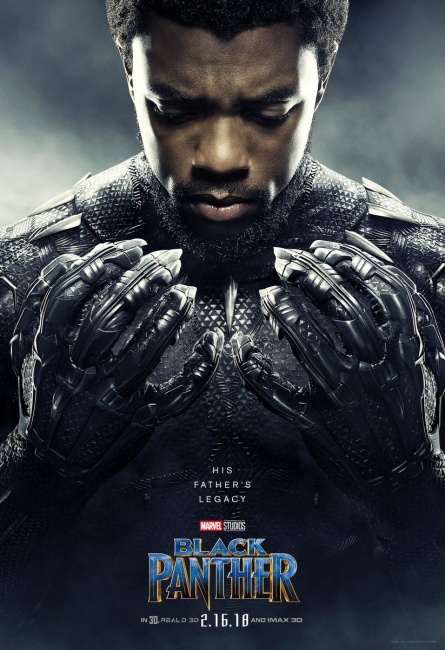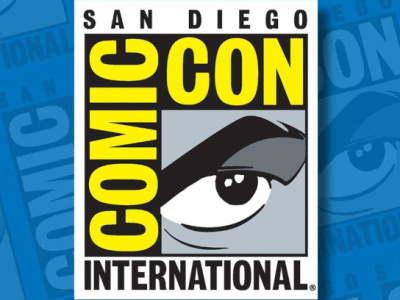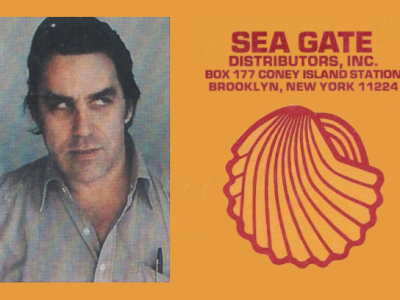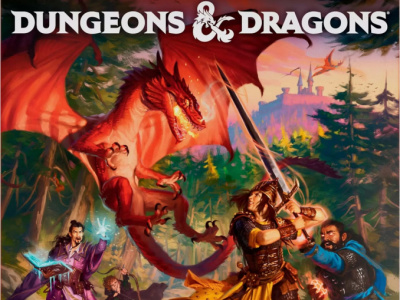Ryan Coogler’s Black Panther became the first film in the Marvel Cinematic Universe to top the box office for four straight weeks, and the first film of any kind to accomplish that feat since Star Wars: The Force Awakens. Black Panther’s continued dominance overshadowed the debut of another Disney film, Ava DuVernay’s A Wrinkle in Time, which debuted below expectations with an estimated $33.3 million. Lacking a strong performance from a newcomer, the weekend box office total slipped 16.3% from the same frame a year ago when Kong: Skull Island opened with $61 million.
Dropping just 38% in its fourth frame, Black Panther posted the third best fourth weekend of all time, earning an estimated $41.1 million, and driving its domestic cumulative to a massive $562 million and its global total over the billion dollar mark. In the domestic market Black Panther is now the seventh biggest release of all time and the second-highest grossing superhero film ever (not adjusting for inflation in either case). If rising ticket prices are taken into account, Black Panther is still already in fifth position trailing only Batman (1989--$577 million adjusted), Spider-Man (2002--$638 million adjusted), The Dark Knight (2008--$684 million adjusted), and The Avengers (2012--$706 million adjusted).
Black Panther has still made more here in North America than in the rest of world all together, but the overseas markets are catching up a bit, adding $100 million this week, the bulk of which ($66.5 million) came from China where the film debuted with the fifth best launch ever for a superhero film (though there are some indications that Black Panther may have a shorter run in the Middle Kingdom than elsewhere).
Disney was hoping for a much better debut for Ava DuVernay’s adaptation of Madeleine L’Engle’s classic children’s book A Wrinkle in Time. The studio certainly can’t be faulted (nor can the film’s stars) for their unflagging promotional efforts, and perhaps A Wrinkle in Time, which was directed by an African-American woman and features a diverse, and primarily female cast, has been hurt by the continued success of the Black Panther. African-Americans comprised just 17% of the opening weekend audience for A Wrinkle in Time versus 37% of the Black Panther’s debut crowds.
Disney has had problems in the past with leggy hits that get in the way of the next big film from the Mouse House. This is why the studio pushed the opening of Avengers: Infinity War from the MCU “sweet spot” on the first weekend in May to April 27 to create a gap of a full month before the release of Solo: A Star Wars Story on May 25.
But timing doesn’t account for A Wrinkle in Time’s weak reviews. The film has just a 42% positive rating on review aggregator Rotten Tomatoes, and received a lackluster “B” CinemaScore from opening weekend audiences, which skewed female (60%) and younger (57% under 25). Caucasians made up 56% of the ticket buyers, followed by Hispanics (20%), African-Americans (17%), and Asians (5%). Disney, which has had its share of box office failures (John Carter, The BFG, Prince of Persia, The Lone Ranger) while attempting to create new franchises or hits outside of movies based on its animated properties, the MCU, and Star Wars, spent $103 million on A Wrinkle in Time. Unless A Wrinkle in Time exhibits great “legs” here, or hits it big outside of North America (where it has earned about $6.3 million from about 14% of the overseas markets), the studio will probably end up losing some money on the film. But given the studio’s immense successes, an occasional box office failure is not a bad thing, particularly when Disney is, in the case of A Wrinkle in Time, thinking outside the usual Hollywood box and providing opportunities for talents like DuVernay and Storm Reid.
Contrast the number of kid-targeting films, both live-action and animated, that feature boys and boy-friendly properties with those like A Wrinkle in Time that specifically attempt to attract girls, and you find a great imbalance. It’s too early to say that A Wrinkle in Time is a bomb—The Greatest Showman has demonstrated that even a terrible debut weekend does not necessarily spell doom—but if A Wrinkle in Time does turn out to be less than a success, hopefully it will not put a damper on future efforts to create fantasy films with female casts.
In the first quarter of last year the box office was helped immensely by the strong performances of two horror films, M. Knight Shyamalan’s Split ($138.3 million), and Jordan Peele’s Get Out ($176 million). This year, no such luck, and don’t count on Aviron’s Strangers: Prey at Night, which debuted in third with $10.2 million. The bad news here is not the size of the opening, rather it comes from the reaction of the audience, which was 51% female, and which gave the movie a kiss-of-death “C” CinemaScore.
Fox’s adult spy drama Red Sparrow, which stars Jennifer Lawrence, dropped 51.6% in its second frame as it earned $8.2 million to bring its domestic total to $31.1 million. This $69 million production is doing better overseas where it has made $51.8 million.
The fifth spot went to John Francis Daley’s R-rated comedy Game Night, which slipped just 24.3% in its third frame, earning $7.9 million and driving its domestic total to $45 million. Game Night is showing the kind of “legs” that comedies apparently need in today’s highly competitive movie marketplace.
The third new film to debut in the top ten this week was Rob Cohen’s Fast and Furious-inspired caper film The Hurricane Heist, which turned out to more of a “mugging in a mist,” as it earned just $3.2 million from 2,400 theaters for a lowly $1,311 average.
Still in the top ten after twelve weekends was Jumanji: Welcome to the Jungle, which earned $2.8 million to bring its domestic total to $397.3 million. By this time next week the Jumanji sequel could well be over $400 million here in North America.
Opening outside the top ten was Amazon Studios’ dark comedy Gringo, which earned just $2.6 million from over 2,400 theaters posting the 27th worst opening ever for a film bowing in more than 2,000 theaters. Amazon handled the marketing and production on Gringo—and with a showing like this, it should be free on Prime soon.
Also outside the top ten, Guillermo Del Toro’s The Shape of Water, which won best picture at the Oscars, doubled its theater count and added $2.4 million to its domestic total (now $61 million). Overseas the movie brought in $11.3 million and its global total is now over $150 million.
Next weekend Warner Bros. will release a new Tomb Raider film starring Alicia Vikander into more than 3,600 screens. The Tomb Raider reboot opened overseas this weekend in select markets and earned $14.1 million. Also debuting here next weekend will be the Greg (Green Lantern) Berlanti-directed romantic teen comedy Love, Simon on 2,400 screens, and the docudrama 7 Days in Entebbe in 800 venues.
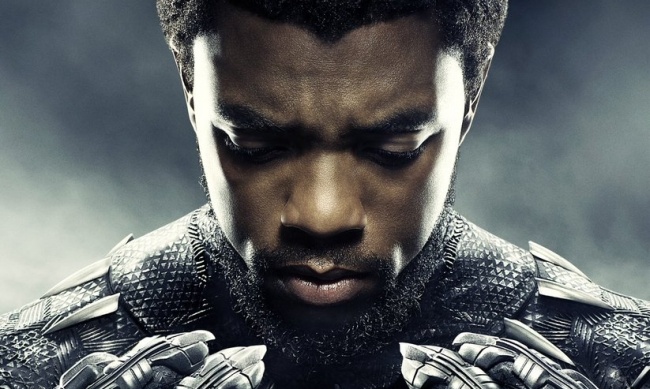
'A Wrinkle in Time' Falters
Posted by Tom Flinn on March 11, 2018 @ 3:08 pm CT
MORE COMICS
Column by Rob Salkowitz
August 5, 2025
In this week's column by Rob Salkowitz, he looks at the industry's biggest show, held in the midst of some existential issues.
On Growth in 2024, YTD 2025, Retailer Tiers, New Functionalities
August 5, 2025
We talked about the growth of comics on the platform last year, what's happening in 2025, the use of retailer tiers, and new functionalities being used for comics.
MORE COLUMNS
Column by Paul Levitz
August 5, 2025
In this column, writer and former DC Comics Publisher Paul Levitz looks at the induction of Phil Seuling into the Will Eisner Hall of Fame.
Column by Scott Thorne
August 4, 2025
This week, Scott Thorne addresses some comments on last week's column and the right price for starter products.



